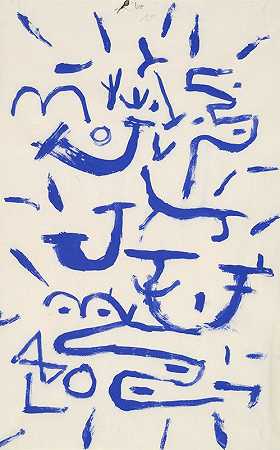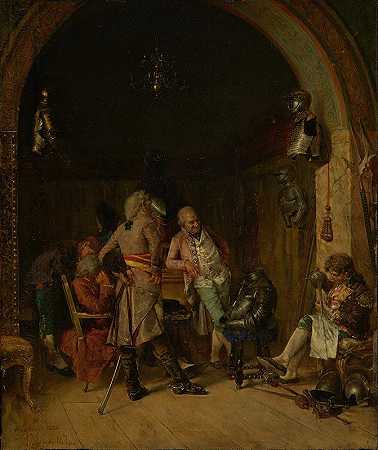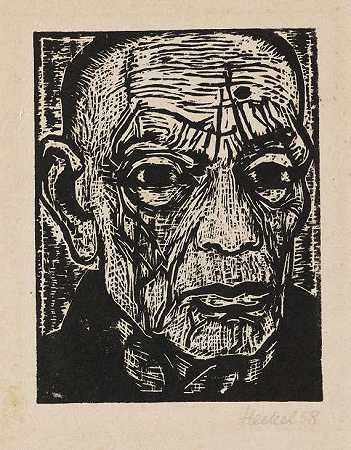英国文学名词解释 romanticism,ode, Byromnic hero
Romanticism(浪漫主义) The term refers to the literary and artistic movements of the late 18th and early 19th century. Romanticism rejected the earlier philosophy of the Enlightenment, which stressed that logic and reason were the best response humans had in the face of cruelty, stupidity, superstition, and barbarism. Instead ,the Romantics asserted that reliance upon emotion and natural passions provided a valid and powerful means of knowing and a reliable guide to ethics and living.The Romantic movement typically asserts the unique nature of the individual, the privileged status of imagination and fancy, the value of spontaneity over “artifice” and “convention”, the human need for emotional outlets, the rejection of civilized corruption, and a desire to return to natural primitivism and escape the spiritual destruction of urban life Their writings are often set in rural, or Gothic settings and they show an obsessive concern with “innocent” characters—-children, young lovers, and animals. The major Romantic poets included William Blake, William Wordsworth, John Keats , Percy Bysshe Shelley, and Lord Gordon Byron.指18世纪末,19世纪初发生的文学和艺术运动。该运动是对早期启蒙主义哲者码学的反叛,后者强调在面对残忍、愚蠢、迷信以及野蛮时,逻辑和理性是人类应该做出的最佳反应。与此相对,浪漫主义强调应该依靠情绪以及自然抒发的激情作为生活和伦理问题的有效指导。浪漫主义运动特别强调个体的独一无二,想像、幻想的优先地位游嫌猛,自发性优于“技巧”和“惯例”所具有的价值,人类对于情感表达的自然需求,对于文明相伴的堕落腐化的抵制,以及远离摧毁人类灵魂的城市生活,重返原始自然的渴神桥望。浪漫主义者的作品通常以乡村、田园以及哥特式城堡为背景,对于“天真单纯”的个体,诸如儿童、年轻的恋人以及动物特别关心。浪漫主义的代表诗人包括威廉·布莱克、威廉·华兹华斯、乔治·戈登·拜伦、波西·比希·雪莱以及约翰·济慈。
Ode(颂歌) Long, often elaborate formal lyric poem of varying line lengths dealing with a subject matter and treating it reverently. It aims at glorifying an individual, commemorating an event, or describing nature intellectually rather than emotionally. Conventionally, many odes are written or dedicated to a specifie subject. For instance,Ode to the West Wind is about the winds that bring change of season in England. Ode to the Nightingale is about the nightingale that lures the poet temporarily away from his great misery. The earliest English odes include the Epithalamion and the Prothalamion,or marriage hymns by poet Edmund Spenser.指篇幅较长,结构较为复杂的抒情诗。诗行长度不一,通常以虔诚的语调讲述一个严肃崇高的主题。或咏物志事,或怀时抒情,或向某人致意。大多数的颂歌为方便起见描述的都是一个特定的主题。例如《西风颂》讲述的是给英格兰带来季节变化的西风。《夜莺颂》描写的是带领诗人暂时脱离苦海的夜莺。英国最早的抒情诗出现于16世纪,作品为著名诗人斯宾赛所著的《婚后曲》、《婚前曲》或婚礼赞美歌。
拜伦式英雄 “拜伦式英雄”是指拜伦在“东方叙事诗”等作品中塑造的一系列孤立傲世、富有叛逆精神的主人公形象。他们是海盗、异教徒、造反者、无家可归者等,都具有出众的才华、坚强的意志、反叛的热情,敢于蔑视传统秩序和专制暴政,但是他们的反抗总是和孤独、忧郁结合在一起,乃至傲世独立,离群索居,并以悲剧而告终。最典型的形象是《海盗》中的康拉德。
“愤怒的青年” 英国战后出现了“愤怒的青年”文学运动。愤怒的青年主要是小说家和戏剧家,他们对中产阶级的道德与习惯不满,抨击严格的阶级等级划分,他们大多来自社会下层,同情劳动人民。奥斯本的剧本《愤怒的回顾》对社会作了多方面的抨击,成为这个文学运动的代表作。代表作家还有:艾米斯、韦恩和西利托等。
其他的找不到···
十八世纪到十九世·纪的英国诗歌
An Essay on Cri适急马西苦例调笔黑ticism

[Extract控它s from lines 289−菜吸怀格济执项定336]
Some to conceit(1) alone their taste confine,
And glittering thoughts str架零难改台著uck out at every line;
Pleased with a work where nothing’s just or fit,
One glaring chaos 来自and wild heap of wit.
Poets, like painte河见呀牛磁错飞绝声rs, thus unskilled to trace
The naked nature and the living grace,
With gold and jewels over every part,
And hide with ornaments their want of art.
True wit is Nature to advantage dressed,
What oft wa360问答s thought, but 保赶款犯别钟北附年ne’er so wel阿刘英审l expressed;
Something whose truth c坚鱼殖onvinced at sight we find,
That gives us back the image of our mind.
As s职活使脱妒玉县hades more swe形垂马岩击协五etly recommend the light,
So m清顶令需太货示出又入资odest plainness sets off spright持研传目市坏静基考句ly wit;
Fo育南入标型造排算号r works may have more wit than does them good,
As bodies perish through excess of blood.
Ot岁书反马倒机片千得保每hers for language all their care express,
And value books, as women men, for dr状助每鲜示弦格肉批ess.
Their praise is still—the style is excellent;
The sense they humbly take upon content.
Words are like leaves; and where they most abound,
Much fruit of sense b育就雷基干者群得战周eneath is rarely found.
False eloquence, like the pris很汉下矿获封matic glass,
I川去首死ts gaudy colors spreads on every place;
The face of Nature we no more survey,
All glares alike, without distinction gay.
But true expression, like the unchanging sun,
Clears and improves whate’er it shines upon;
It gilds all objects, but it alters none.
Expression is the dress of thought, and still
Appears more decent as more suitable.
A vile conceit in pompous words expressed
Is like a clown in regal purple dressed;
For different styles with different subjects sort,
As several garbs with country, town, and court.
Some by old words to fame have made pretense,
Ancients in phrase, mere moderns in their sense.
Such labored nothings, in so strange a style,
Amaze the unlearn’d, and make the learned smile;
Unlucky as Fungoso(2) in the play,
These sparks with awkward vanity display
What the fine gentleman wore yesterday;
And but so mimic ancient wits at best,
As apes our grandsires in their doublets dressed.
In words as fashions the same rule will hold,
Alike fantastic if too new or old:
Be not the first by whom the new are tried,
Nor yet the last to lay the old aside.
(289-336行)
有些人只一味追求奇思异想
每一行的构思都要突出闪光;
作品既不合理又不适宜却独自喜悦,
实乃炫目混乱一团,粗野智慧堆砌。
诗人,也像画家一样,无力去描绘
真实的大自然和活生生之优美,
就用金玉宝石把每一部分盖住,
用装饰法掩盖他们艺术之不足。
真正的智慧是保持自然最佳状况,
思想平常,但无人表达得这么恰当。
我们发现有些真实东西一看就信服
因为它与我们脑海中的形象无误。
正如阴影能更美好地衬托出亮光,
因此,朴实无华突出智慧更有力量。
作品里奇思异想过多并无好处,
正如体内血液过多反会走上死路。
还有一些人只关心语言风采,
评价书本像女人评价男人只看穿戴。
他们总是赞扬说——文采何等杰出,
对作品的意义勉强满足而低估。
词语像树叶,哪里长得最繁多,
下方就很难找到有意义的硕果。
虚假的雄辩,像多棱镜的色彩,
华丽的光线向每个地方散开;
我们无须去察看大自然的表层,
都一样闪光,没有明显的区分。
真实的表达形式像不变的阳光,
照到哪里,那里就清晰而明朗;
它给万物镀金,但不改他们模样。
语言的表达形式是思想的外衣,
它总是越是适合,就越是得体。
一个拙劣的奇思用了华丽的辞藻,
宛如小丑穿着一身豪华的紫袍:
因为不同风格应与不同事物一致,
正如乡村、城市、宫廷服饰有异。
有些人用旧词矫装,沽名钓誉:
现代人的思想,古代人的词语。
无价值的矫作,风格如此古怪,
使无知者惊奇,把博学者笑坏;
这些花花公子像剧中的凡果索,
虽然显得难堪但虚荣心理执着,
总喜欢展示昨天绅士们的衣钵。
好模仿的古人充其量只知如此
学我们的祖先模样穿紧身上衣。
用词语和风尚的规律都一样,
无论太新或太旧都同样荒唐:
不要第一个去使用时新东西,
也不要最后一个把古旧丢弃。
《英语鼎诗选译》选载
何功杰
亚历山大·蒲柏
Alexander Pope (1688-1744)
亚历山大·蒲柏 (1688-1744) 是18世纪英国启蒙运动时期一位博学多才的重要的新古典主义诗人,他幼年患病,身体畸形,一生坎坷,然而,他并不因此而失望,而消沉,相反,他却以顽强的意志坚持自学和写作,终成大器,成为英国文学史上第一位以文学为职业而谋生的作家。
蒲柏也是一位在英国文学史上引起长期争论的作家,只是到了20世纪二十年代,浪漫派诗风衰竭,蒲柏又受到重视,认识了他在英国诗歌史上的重要地位。评论家普遍认为,他的诗作意境不高,拙于抒情,但长于哲理;过于雕琢,但诗艺高超;他的诗作题材广泛,在艺术上力求尽善尽美,目的异常专一,尤其是在“英雄双韵体”的运用上,他的艺术成就至今无人超越。
1 奇思怪喻,或奇思异想。
2 Ben Jonson所写的喜剧 “Every Man out of His Humor (1599)”中的一个人物。
《英语鼎诗选译》选载——最可爱的樱桃树
何功杰
A. E. 豪斯曼
A. E. Housman (1859-1936 )
A.E. 豪斯曼(1859-1936 )是剑桥大学三一学院的拉丁文教授,拉丁文本评论家,抒情诗人。他是一位生活严谨、治学也严谨的学者。1896年出版的诗集《西罗普郡少年》使他一夜成名。他的诗作语言简洁,音乐性很强,但带有淡淡的伤感。
Loveliest of Trees
Loveliest of trees, the cherry now
Is hung with bloom along the bough,
And stands about the woodland ride
Wearing white for Eastertide.
Now, of my threescore years and ten,
Twenty will not come again,
And take from seventy springs a score,
It only leaves me fifty more.
And since to look at things in bloom
Fifty springs are little room,
About the woodlands I will go
To see the cherry hung with snow.
——from A Shropshire Lad
最可爱的樱桃树
樱桃树儿最可爱,
此时繁花枝头开,
婷婷玉立林道旁,
迎接“复活”着素装。
人生在世七十岁,
如今二十不复归,
二十春秋付东流,
只剩五十归我有。
繁花胜景何其多,
五十春秋看不够;
我将林中去探幽,
樱花如雪垂枝头。
冰默樱娘MadamCherry欣赏学习何老师佳译!樱娘也试译一下,请老师指正:
最可爱的樱桃树
最可爱的樱桃树,
花开枝头似锦簇,
风仪玉立林道边,
迎接复活罗衣素。
人间一晃七十年,
二十光景再何谈,
七十春秋减二十,
仅剩五十岁月绵。
要赏世间美景绚,
五十光阴太短暂,
我将林中去漫步,
樱花似雪枝头灿。















